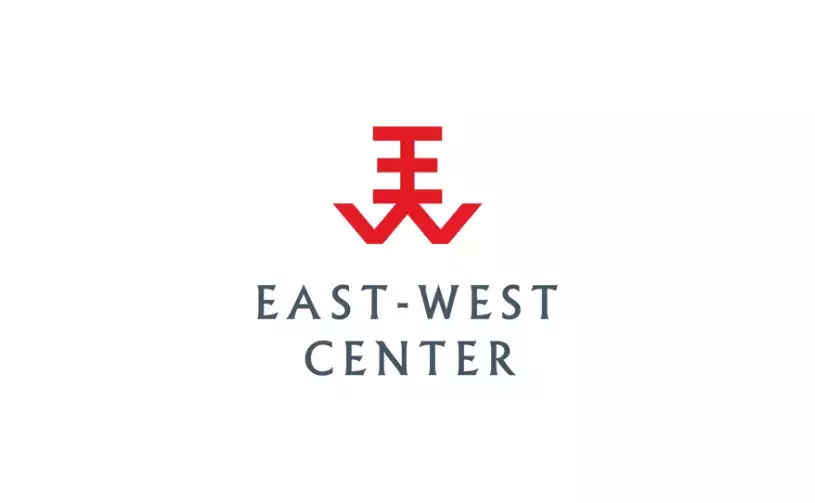Error message

By Eric Harwit
HONOLULU (Jan. 11, 2019)—China is moving rapidly away from relying on foreign communications technologies toward developing its own innovative formats, and new homegrown applications are flourishing. One of the most successful is the cutting-edge mobile application for smart phones, WeChat.
The Chinese media giant Tencent launched WeChat in January 2011 as a text-messaging platform. The novelty of sending free text messages soon wore off, however, so Tencent added new features to attract more users.
These included a voice-messaging function and two Facebook-like features for posting and sharing photographs. WeChat now allows users to place video calls between subscribers, paralleling some of the functionality of Skype, and WeChat’s mobile payment service has become a popular way to make many types of retail purchases, contributing to a growing “cashless” society in China.
The addition of these popular new features has brought a speedy increase in user numbers. By March 2018, WeChat had passed the 1 billion activemonthly user mark. Some estimates indicate 70 million to 100 million of these WeChat users live outside China.
As of mid-2014, 64 percent of WeChat users were men, and 36 percent were women. Most were young—45 percent were 18 to 25 years old, and 41 percent were 26 to 35. Only 2 percent were older than 50. Twenty percent were students, and 60 percent worked for private enterprises or were self-employed or freelance workers.
Limiting reach
The main features that have attracted and held WeChat’s mostly young, entrepreneurial users are the core functions designed for individual-level and small-group interaction and entertainment. By design, the platform generally does not allow communication to broad audiences, which limits the potential to use WeChat’s as a tool for political action. In the same way that the Chinese government limits and monitors large groups in the physical world, WeChat’s rules restrain the growth of groups in the virtual world.
One WeChat tool that can be used for broad-based communication is the “Public Account,” a service that offers text messages or visual information—typically from corporations, news agencies, or celebrities—to users who choose to subscribe. There is no limit to the number of subscribers and no restriction on the number of characters in a Public Account message.
To register for a Public Account, however, individuals need to supply personal identification, including a photocopy of a government identification document and a personal photo. Companies are required to provide a business license, registration numbers, government identification documents, and other evidence that they are a legitimate enterprise. Although many of these measures are likely intended to prevent fraudulent schemes and promote consumer safety, they also provide authorities with information on any Public Account that might be used to post information opposed by the government.
Keeping tabs
It might be assumed that the Chinese government would welcome WeChat because the platform tends to move users away from mass microblog broadcasts toward communication with a smaller circle of friends. New government rules, however, have mandated that Tencent monitor domestic WeChat conversations to detect politically sensitive terms, such as those related to anti-Communist Party activity or the names of prominent activists.
Offending users face a three-step process of sanctions against writing or posting prohibited materials. The first objectionable text is deleted or replaced by three stars (***). Users who commit a second violation receive a warning directly from WeChat. Finally, if users commit a third violation, their accounts are closed.
Any user wishing to sign up for WeChat has to provide a valid mobile phone number, and registration for a mobile phone number requires proof of identity. Tencent stores a record of virtually all of the phone numbers on each customer’s contact list, so the Chinese government—through a request to Tencent—could potentially have access to the list of contacts for any WeChat user.
Chinese citizens are generally accustomed to this kind of oversight, and they typically practice self-censorship in their communications. In small-group WeChat communications among friends and relatives, there seems to
be little inclination for users to raise issues that are politically controversial. One report by the Chinese Academy of Social Sciences asserted that only 7 percent of “fake news” originated from WeChat, compared with 59 percent originating on the microblogging website Weibo.
Nevertheless, in January 2015, China’s Internet watchdog, the Cyberspace Administration, shut down 133 WeChat Public Accounts, accusing them of “making up stories and spreading false and illegal information about the Communist Party of China and the nation.” Some accounts were apparently reported to the official regulator by individual WeChat subscribers.
The Chinese government’s monitoring and censorship of WeChat outside China’s borders, whether real or imagined, also inhibits the overseas adoption of this messaging platform. Although Tencent seeks further international growth, the potential fear of the Chinese government’s access to information on user traffic may deter individual foreign users and raise red flags among Western governments.
The Net effect
WeChat is currently riding a wave that could reverse several decades of movement toward greater digital reach. The result is smaller, cohesive groups of netizens that act on a local rather than national scale.
Because of its focus on limited communication, WeChat has drawn Chinese citizens away from alternative public online activities, such as blogging or Twitter-like microblogging, which tend to encourage a maximum number
of followers. Between the beginning of 2013 and the middle of 2015, the number of WeChat users in China more than tripled, while the number of microblog users shrunk by one-third.
WeChat’s limitations on group size and its restriction to known contacts appear to be creating greater trust and comfort among users, inspiring them to stay within these intimate communities. At the same time, group postings on the app have limited reach, restricting the spread of ideas and information to a broader local or national audience.
At the global level, WeChat may create a divide between Chinese WeChat subscribers and people in the rest of the world who use other social media tools. WeChat’s popular features will continue to attract Chinese users, but at the expense of isolating them within small virtual communities and keeping them detached from global communications media.
Eric Harwit is an Adjunct Senior Fellow at the East-West Center and a Professor of Asian Studies at the University of Hawai‘i at Mānoa.
Download a pdf version of this Wire article.
##
The East-West Wire is a news, commentary, and analysis service provided by the East-West Center in Honolulu. All or any part of the Wire content may be used by media with attribution to the East-West Center or the person quoted. To receive Wire articles via email, subscribe here. For links to all East-West Center media programs, fellowships and services, see www.eastwestcenter.org/journalists.
The full list of East-West Wires produced by the Research Program is available on the East-West Center website. For more on the East-West Center Research Program, see www.eastwestcenter.org/research.
The East-West Center promotes better relations and understanding among the people and nations of the United States, Asia, and the Pacific through cooperative study, research, and dialogue.
Series editors:
Derek Ferrar
[email protected]
Sidney B. Westley
[email protected]
By Eric Harwit
HONOLULU (Jan. 11, 2019)—China is moving rapidly away from relying on foreign communications technologies toward developing its own innovative formats, and new homegrown applications are flourishing. One of the most successful is the cutting-edge mobile application for smart phones, WeChat.
The Chinese media giant Tencent launched WeChat in January 2011 as a text-messaging platform. The novelty of sending free text messages soon wore off, however, so Tencent added new features to attract more users.
These included a voice-messaging function and two Facebook-like features for posting and sharing photographs. WeChat now allows users to place video calls between subscribers, paralleling some of the functionality of Skype, and WeChat’s mobile payment service has become a popular way to make many types of retail purchases, contributing to a growing “cashless” society in China.
The addition of these popular new features has brought a speedy increase in user numbers. By March 2018, WeChat had passed the 1 billion activemonthly user mark. Some estimates indicate 70 million to 100 million of these WeChat users live outside China.
As of mid-2014, 64 percent of WeChat users were men, and 36 percent were women. Most were young—45 percent were 18 to 25 years old, and 41 percent were 26 to 35. Only 2 percent were older than 50. Twenty percent were students, and 60 percent worked for private enterprises or were self-employed or freelance workers.
Limiting reach
The main features that have attracted and held WeChat’s mostly young, entrepreneurial users are the core functions designed for individual-level and small-group interaction and entertainment. By design, the platform generally does not allow communication to broad audiences, which limits the potential to use WeChat’s as a tool for political action. In the same way that the Chinese government limits and monitors large groups in the physical world, WeChat’s rules restrain the growth of groups in the virtual world.
One WeChat tool that can be used for broad-based communication is the “Public Account,” a service that offers text messages or visual information—typically from corporations, news agencies, or celebrities—to users who choose to subscribe. There is no limit to the number of subscribers and no restriction on the number of characters in a Public Account message.
To register for a Public Account, however, individuals need to supply personal identification, including a photocopy of a government identification document and a personal photo. Companies are required to provide a business license, registration numbers, government identification documents, and other evidence that they are a legitimate enterprise. Although many of these measures are likely intended to prevent fraudulent schemes and promote consumer safety, they also provide authorities with information on any Public Account that might be used to post information opposed by the government.
Keeping tabs
It might be assumed that the Chinese government would welcome WeChat because the platform tends to move users away from mass microblog broadcasts toward communication with a smaller circle of friends. New government rules, however, have mandated that Tencent monitor domestic WeChat conversations to detect politically sensitive terms, such as those related to anti-Communist Party activity or the names of prominent activists.
Offending users face a three-step process of sanctions against writing or posting prohibited materials. The first objectionable text is deleted or replaced by three stars (***). Users who commit a second violation receive a warning directly from WeChat. Finally, if users commit a third violation, their accounts are closed.
Any user wishing to sign up for WeChat has to provide a valid mobile phone number, and registration for a mobile phone number requires proof of identity. Tencent stores a record of virtually all of the phone numbers on each customer’s contact list, so the Chinese government—through a request to Tencent—could potentially have access to the list of contacts for any WeChat user.
Chinese citizens are generally accustomed to this kind of oversight, and they typically practice self-censorship in their communications. In small-group WeChat communications among friends and relatives, there seems to
be little inclination for users to raise issues that are politically controversial. One report by the Chinese Academy of Social Sciences asserted that only 7 percent of “fake news” originated from WeChat, compared with 59 percent originating on the microblogging website Weibo.
Nevertheless, in January 2015, China’s Internet watchdog, the Cyberspace Administration, shut down 133 WeChat Public Accounts, accusing them of “making up stories and spreading false and illegal information about the Communist Party of China and the nation.” Some accounts were apparently reported to the official regulator by individual WeChat subscribers.
The Chinese government’s monitoring and censorship of WeChat outside China’s borders, whether real or imagined, also inhibits the overseas adoption of this messaging platform. Although Tencent seeks further international growth, the potential fear of the Chinese government’s access to information on user traffic may deter individual foreign users and raise red flags among Western governments.
The Net effect
WeChat is currently riding a wave that could reverse several decades of movement toward greater digital reach. The result is smaller, cohesive groups of netizens that act on a local rather than national scale.
Because of its focus on limited communication, WeChat has drawn Chinese citizens away from alternative public online activities, such as blogging or Twitter-like microblogging, which tend to encourage a maximum number
of followers. Between the beginning of 2013 and the middle of 2015, the number of WeChat users in China more than tripled, while the number of microblog users shrunk by one-third.
WeChat’s limitations on group size and its restriction to known contacts appear to be creating greater trust and comfort among users, inspiring them to stay within these intimate communities. At the same time, group postings on the app have limited reach, restricting the spread of ideas and information to a broader local or national audience.
At the global level, WeChat may create a divide between Chinese WeChat subscribers and people in the rest of the world who use other social media tools. WeChat’s popular features will continue to attract Chinese users, but at the expense of isolating them within small virtual communities and keeping them detached from global communications media.
Eric Harwit is an Adjunct Senior Fellow at the East-West Center and a Professor of Asian Studies at the University of Hawai‘i at Mānoa.
Download a pdf version of this Wire article.
##
The East-West Wire is a news, commentary, and analysis service provided by the East-West Center in Honolulu. All or any part of the Wire content may be used by media with attribution to the East-West Center or the person quoted. To receive Wire articles via email, subscribe here. For links to all East-West Center media programs, fellowships and services, see www.eastwestcenter.org/journalists.
The full list of East-West Wires produced by the Research Program is available on the East-West Center website. For more on the East-West Center Research Program, see www.eastwestcenter.org/research.
The East-West Center promotes better relations and understanding among the people and nations of the United States, Asia, and the Pacific through cooperative study, research, and dialogue.
Series editors:
Derek Ferrar
[email protected]
Sidney B. Westley
[email protected]
East-West Wire
News, Commentary, and Analysis
The East-West Wire is a news, commentary, and analysis service provided by the East-West Center in Honolulu. Any part or all of the Wire content may be used by media with attribution to the East-West Center or the person quoted. To receive East-West Center Wire media releases via email, subscribe here.
For links to all East-West Center media programs, fellowships and services, see www.eastwestcenter.org/journalists.







